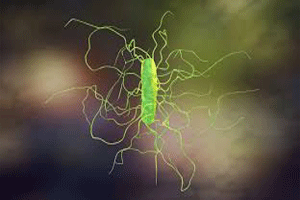- Home
- Editorial
- News
- Practice Guidelines
- Anesthesiology Guidelines
- Cancer Guidelines
- Cardiac Sciences Guidelines
- Critical Care Guidelines
- Dentistry Guidelines
- Dermatology Guidelines
- Diabetes and Endo Guidelines
- Diagnostics Guidelines
- ENT Guidelines
- Featured Practice Guidelines
- Gastroenterology Guidelines
- Geriatrics Guidelines
- Medicine Guidelines
- Nephrology Guidelines
- Neurosciences Guidelines
- Obs and Gynae Guidelines
- Ophthalmology Guidelines
- Orthopaedics Guidelines
- Paediatrics Guidelines
- Psychiatry Guidelines
- Pulmonology Guidelines
- Radiology Guidelines
- Surgery Guidelines
- Urology Guidelines
Unique clindamycin-resistant C difficile strain responsible for epidemics identified

Clostridioides (formerly Clostridium) difficile continues to affect patients in hospitals and extended-care facilities in the United States as a leading cause of healthcare-associated infectious diarrhoea and colitis. Each year, more than 400,000 cases of C. difficile that result in nearly 30,000 deaths are reported in the United States, according to a 2015 report.
Researchers have identified a Clostridioides difficile strain related to the epidemic PCR ribotype (RT) 027 strain associated with hospital outbreaks of severe disease in a surveillance study of patients in a Veterans Administration (VA) long-term care facility. One in 10 hospital patients who develop Clostridioides difficile infections may already have the dangerous germ when admitted, but no diarrhoea symptoms, a new study finds. The research has been reported in Emerging Infectious Diseases.
The strain, which was detected in 15 patients at the Louis Stokes VA Hospital in Cleveland, was identified as restriction endonuclease analysis (REA) group DQ, ribotype (RT)591, and is closely related to the epidemic BI/RT027 strain associated with numerous healthcare facility outbreaks and an increasing number of illnesses and deaths. Whole-genome sequencing and multi-locus sequence typing (MLST) showed that the strains share several genetic and phenotypic characteristics and reside in the same clade (MLST 2), but form a separate cluster.
Antimicrobials susceptibility testing of the DQ/RT591 isolates revealed high-level resistance to clindamycin and azithromycin. The seven C difficile infections caused by DQ/RT591 were healthcare-associated, and all patients in whom DQ/RT591 was confirmed had received antibiotics within 90 days before testing. DQ/RT591 did not appear to carry the same level of severity that BI/RT027 has exhibited.
Because REA DQ/RT591 is closely related to BI/027, further monitoring is required to determine whether this strain carries a risk for increased illness and death or has the capability of widespread dissemination. Since we completed this work, RT591 was reported as the most prevalent C. difficile strain in 3 tertiary hospitals in Colombia. These RT591 isolates were also mostly resistant to clindamycin (85%).
DQ/RT591 produced a similar cytopathic effect as RT027 but showed delayed toxin production in vitro. DQ/RT591 was susceptible to moxifloxacin but highly resistant to clindamycin. Continued surveillance is warranted for this clindamycin-resistant strain that is related to the fluoroquinolone-resistant epidemic RT027 strain.
Emerging Infectious Diseases
For more details click on the link: https://doi.org/10.3201/eid2602.181965

Disclaimer: This site is primarily intended for healthcare professionals. Any content/information on this website does not replace the advice of medical and/or health professionals and should not be construed as medical/diagnostic advice/endorsement or prescription. Use of this site is subject to our terms of use, privacy policy, advertisement policy. © 2020 Minerva Medical Treatment Pvt Ltd